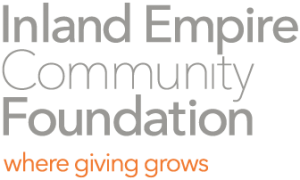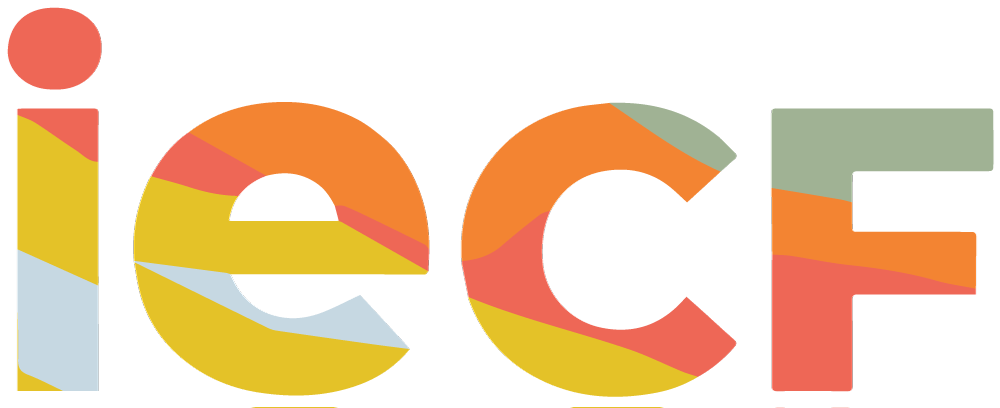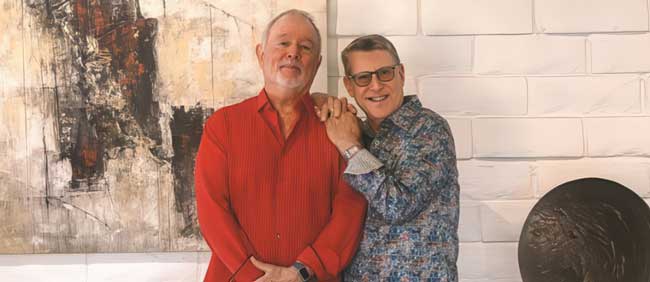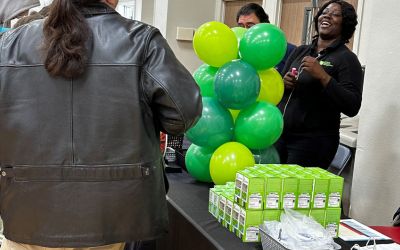
Joesanna Osbourne, BRC Community Preparedness Specialist – Sharing information on ways to be more energy efficient to combat the impacts of climate change at the Winter Wonderland Health and Safety Fair – City of Banning (12/16/23)
The late great Martin Luther King, Jr. once said, “Faith is taking the first step even when you don’t see the whole staircase.” Debra Williams may have taken that to heart. Today, the founding CEO of Building Resilient Communities has, along with a dynamic team, helped local communities rise in the face of extreme challenges.
Back in 2012, Williams was inspired to make a difference after listening to a pastor speak about emergency preparedness. She began speaking in churches throughout the Inland Empire about disaster preparedness only to discover there was a need to fill in some gaps in funding and outreach. Soon enough, she launched Building Resilient Communities, which has become a leading resource for faith-based organizations aptly equipped to prepare for natural and human-made disasters.
“When we first started, we focused on providing resources, tools, and education related to disaster preparedness, response and recovery, with an emphasis on the African American community,” Williams says. “We are Black-led. We work with everybody, but we do focus on the African American community. Most communities are not really prepared for disasters—fire, flood, earthquake, a pandemic. We started working with the faith community, all faiths, to help because we knew when a disaster strikes, people are going to go to the faith community, even if they’re not people of faith.
“The fire department is going to go away, the police department’s going to go away,” she adds. “It’s going to be the trusted messengers in the community that are left to pick up the pieces. If they’re not prepared, then they become part of the problem.”
After more than a decade in operation, the organization now provides training and resources for more than 600 faith-based organizations. It also offers support during times of disaster. One of its main goals is to remove barriers that may unfairly affect people during a disaster and to recover from any disruptive experiences.
“We are the ones who have picked up that mantle since 2012,” Williams says. “When you see the disasters that have happened, it’s the same populations—the BIPOC community is hardest hit. So that’s why we’re important.”
She went on to say that the organization works with all levels of government from local to federal. As such, it can serve as a liaison to help government agencies understand how to reach previously unreachable populations.
“People may have trust issues around past experiences with groups like Public Health, for instance,” Williams points out. “We want to be an important asset in the Inland Empire.
Recently, Building Resilient Communities received a Black Equity Fund grant through the Inland Empire Community Foundation. These resources are vital, Williams assures, as they will fill in the gaps of other funding, which can be restricted in terms of its full reach and impact.
“We are working with the vulnerable and underserved, and we want to do things in a culturally responsible way,” Williams notes. “In order to do that, sometimes that means offering extra incentives.”
Ultimately, it’s all about serving the community, particularly the African American community, in a culturally responsible way.
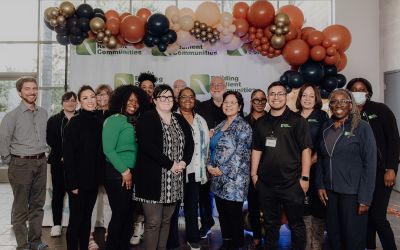
BRC Team and Governor’s Office of Planning and Research Team at Ark of Safety Community Resiliency Summit (11/16/23 Reconvening)
“A lot of people talk about equity but if you only offer your services in a cookie-cutter way, then you’re not addressing equity,” Williams says. “It’s important to reach the areas that are most vulnerable, and in the African American community, we need to do it in a way that they will hear us. And a lot of the funding we receive doesn’t allow us to do those kinds of things.”
She points out an example. When the organization first started working with Riverside County Public Health on COVID response, Williams says her organization was asked to take the lead on COVID response for the entire African American community across Riverside County.
“When we went to the clinics they had set up, the first thing we noticed was they were very sterile,” she says. “It was like going to a doctor’s office. Immediately we did two things. We reached out to the African American churches and said, can we set up clinics? We partnered with a trusted segment—the faith community.”
“We said to Public Health, ‘We don’t have funerals. We have homegoing celebrations,’” she adds. “’ These clinics feel like you’re going to a doctor’s office or a funeral. We want to celebrate life. Yes, we know COVID-19 can kill, but we want to celebrate life. We want to say you’re going to live because of this vaccine. We want liveliness in here. That will help us reach the African American community.’”
These nuances generate significantly positive ripple effects and create a rare if not more personalized kind of outreach. In the coming years, several initiatives are in the works. One of them is an eight-month fellowship for African American men ages 20 to 44 on all things related to health—physical health, mental health, and leadership.
“It’s called Brother to Brother,” Williams says of the pilot program, which launches in March 2024.
In the meantime, Williams remains forever determined to grow the organization and extend its reach. “I’m tired of being on the surface,” she says. “I say, ‘let’s go scuba diving, let’s go deep, let’s go below the iceberg and figure out the barriers causing communities to be vulnerable and underserved.’”
Learn more about Building Resilient Communities at www.brcus.org.
This story originally appeared in the Press Enterprise December January 2024
Learn more about the good work we’re doing at IECF through the power of philanthropy. Subscribe to our free monthly eNewsletter, Philanthropy Matters.
